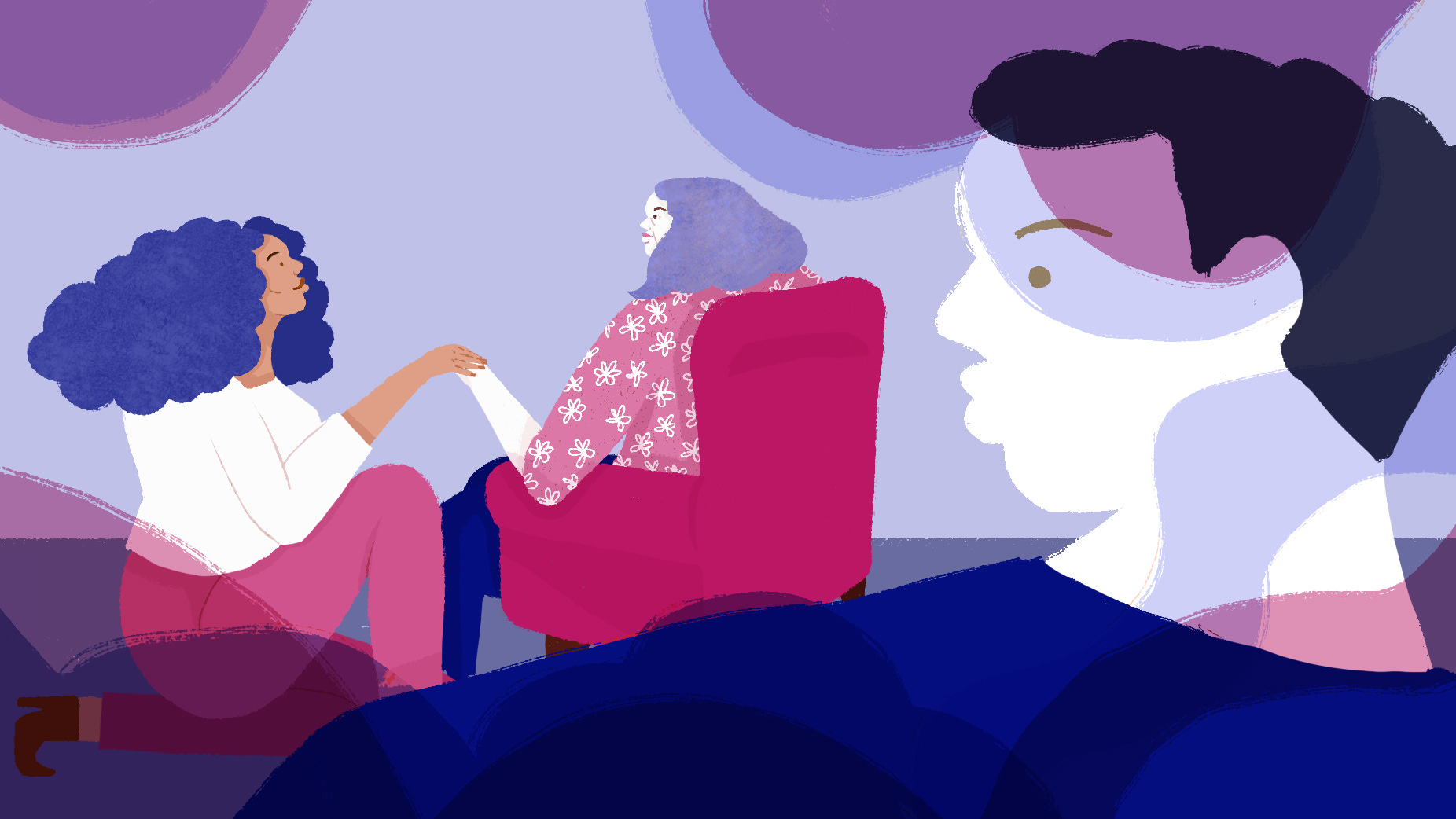I'm Not My Mother's Cleaning Lady
People see an elderly white woman and her middle-aged black daughter and assume I must be the hired help.

Illustrations by Loveis Wise | Edited by Lilly Dancyger
“Who do you work for?” the maintenance man wants to know, eyes narrowed slightly. I register his accent just as he’s appraised my brown skin. English is not his first language. We’re alone in the laundry room of my mother’s condo, where I’ve been folding sheets. He’s just walked in, toolbelt at his hips, and stumbled upon an unfamiliar woman of color. I reason that, to him, brown skin plus housework means Help. Either I work for someone in the building, or else I’m an interloper from the housing project across the street.
As I consider the best response, my gaze takes in the name-tag pinned to his front pocket. “Tony.”
He’s subjugated me with his question, but I know his name. Should I use it and answer directly? With snark?
“I’m self-employed,” I might respond, telling the truth but playing dumb. “I have a private psychotherapy practice in New Jersey.” I could add, “I’m very fortunate. My work schedule allows me to visit my mother a…
Keep reading with a 7-day free trial
Subscribe to Narratively to keep reading this post and get 7 days of free access to the full post archives.



